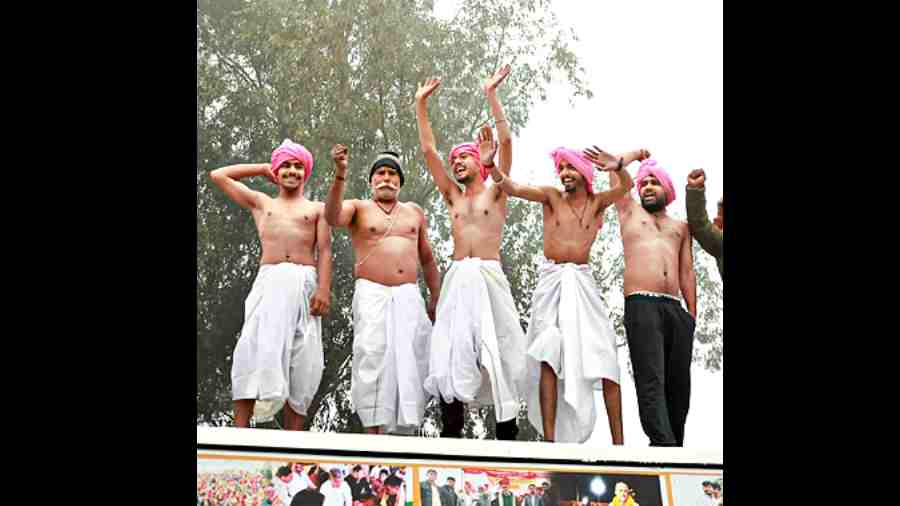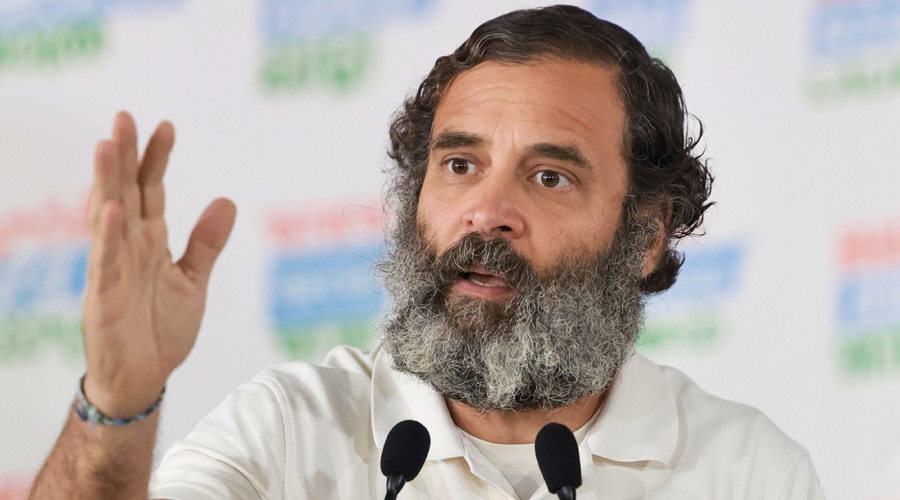Rahul Gandhi on Monday unravelled the mystery of walking in a T-shirt in the cold, giving credence to the perception that his rigidity originated from the desire to suffer what the poor endure.
Addressing a public meeting in Ambala after completing the day’s Bharat Jodo Yatra walk, Rahul said: “The BJP made an issue out of my T-shirt. They are confused why I don’t feel cold. I will tell you why I am wearing the T-shirt. Kerala was hot and humid; you felt like throwing away even the T-shirt. When we entered Madhya Pradesh, it became cold. One morning, three poor children came to me. When I held them, I discovered they were shivering.”
Rahul added: “The three girls were wearing torn shirts. That moment, I decided that I will not wear woollens till I shiver and the cold becomes unbearable. I wanted to send a message to the three girls that if you suffer cold, so will Rahul Gandhi. The day you get a sweater to wear, I too will wear one.”
This was a confession that he too felt cold like everybody else but wanted to suffer to be able to understand the wretched existence of the weakest sections of society. It was also an acknowledgment that tapasya has little meaning without the critical element of suffering — the Gandhian way of identifying with the masses that the MP is trying to emulate.
Rahul said crores of people toiled in the heat and the cold daily, and what he was doing was not exceptional. “When a Yatri walking with me proudly said, ‘We have walked 3,000km’, I told him, ‘You walked after eating three times’. The gareeb-mazdoor of this country walk more, eating half a roti. The real issue is that there is no respect for their tapasya.”
He added: “What’s worse, somebody else gobbles up the fruits of the tapasya of the toiling millions. The farmer works hard and pays for crop insurance.”
Rahul said: “When the rain and storm destroy his crop, he goes seeking compensation but the insurance company is not available. The farmer gets nothing. I want an India where the government takes care of those who do tapasya.
He used the metaphors of the Mahabharata -- the Yatra passed through Haryana, the theatre of the war in the epic -- to explain the nature of political battle today.
“The battle is similar to that in the Mahabharata. The Pandavas were doing tapasya. The Pandavas fought against injustice. Woh bhi nafrat ke bazaar mein mohabbat ki dukan khol rahe theh. They were not spreading hate, not imposing a flawed GST, not doing note-bandi. They wouldn’t have because they knew these were tricks to steal money from the people,” Rahul said.
“The rich and the powerful were not with the Pandavas but the people were with them. The two-three top industrialists today are standing with Kauravas. Who are the Kauravas today? They wear khaki shorts, keep a lathi and hold shakhas. Modi signed the decision for note-bandi but he was forced by the billionaires.”
The message was clear: the ongoing battle is also against injustice and oppression, and the Pandavas will again have to fight with the power of truth -- without an organised force or the support of the rich and the powerful.











